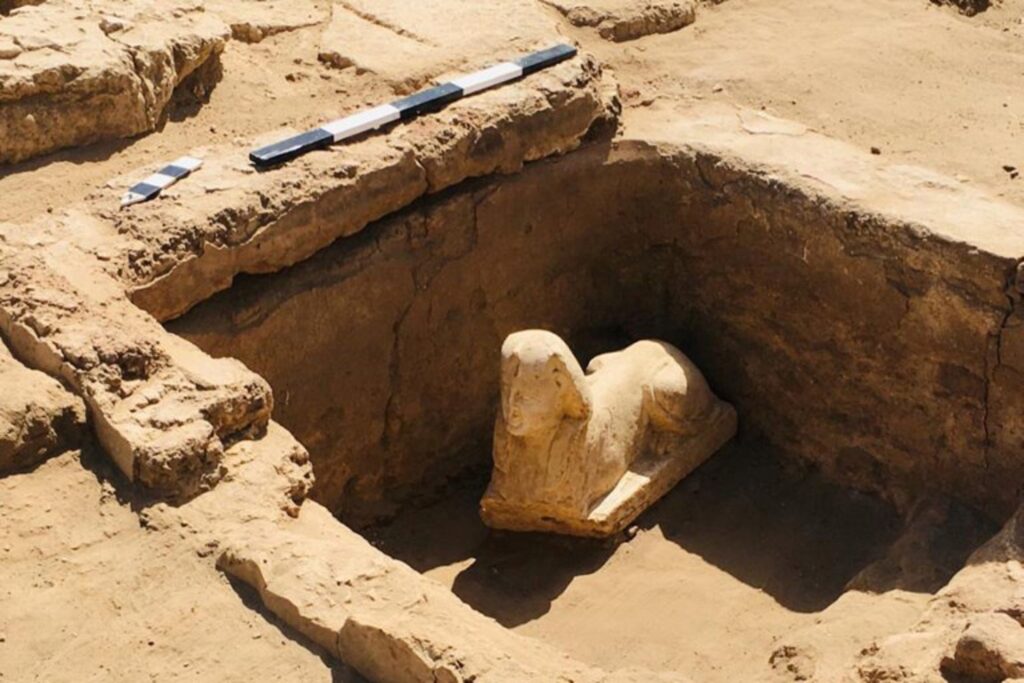A smiling Sphinx-like statue with two dimples representing a Roman emperor has been unearthed in the Hathor temple at Dendera, some 500 km south of Cairo, Egyptian authorities announced on Monday.
This limestone sphinx was discovered in “a Byzantine basin inside a two-tiered tomb” alongside a “Roman stele engraved in demotic and hieroglyphic inscriptions,” the Ministry of Tourism and Antiquities said in a statement.
This stele, it added, has yet to be deciphered to reveal the exact identity of the emperor, who, the Egyptian team in charge of the excavation said, could be “the Roman emperor Claudius”.
The site is famous for the Dendera zodiac, which reached Paris in 1820, when French prefect Sebastien Louis Saulnier sent a team to unseal the bas-relief with explosives. This representation of the celestial vault, more than 2.5 metres wide and high, has hung from a ceiling in the Louvre since 1922, while a plaster copy replaces it at Dendera.
Egypt has revealed several major discoveries in recent months, mainly in the Saqqara necropolis near Cairo, known for the step pyramid of the pharaoh Djoser, but also on the famous Giza Plateau, where the last of the seven wonders of the ancient world still stands.
On Thursday, Cairo announced the discovery of a hidden, nine-metre corridor inside Egypt’s Great Pyramid, the Pyramid of Cheops, which could possibly lead to “the real burial chamber of King Cheops” believed to contain the pharaoh’s treasure.
Further south, in Luxor, the Thebes of the Pharaohs, remains of “an entire Roman city” dating back to the first centuries AD were recently uncovered.
For some experts, such announcements have greater political and economic importance than scientific significance. This is because the country of nearly 105 million inhabitants is experiencing a serious economic crisis and is counting on tourism to redress its finances.
Its government is aiming for 30 million tourists a year by 2028, compared with 13 million before Covid-19.

